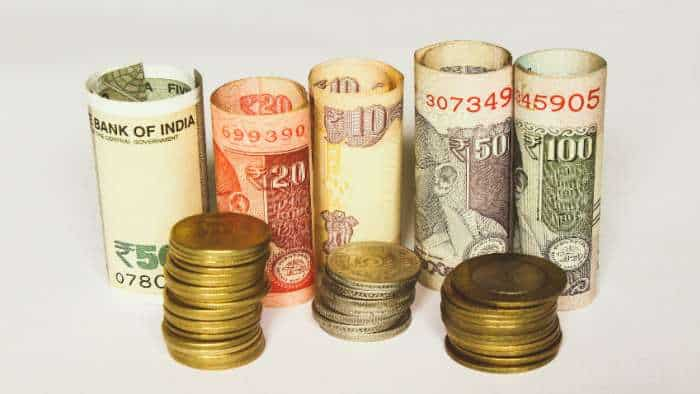Reckitt Benckiser is betting on connected consumer products as part of a push to show investors its innovative approach can still drive growth.
In an interview at Reckitt`s global headquarters outside London, Chief Executive Rakesh Kapoor dismissed suggestions that a recent product failure signaled Britain`s 12th most valuable company has lost its design mojo.
"Innovation for this company is cultural. It`s in our blood, in our DNA," said Kapoor, who has a reputation for disciplined cost management, adding that detailed product pipeline reviews were conducted monthly like profit-and-loss assessments.
The group`s creative prowess is under scrutiny after last year`s poor market response to a 60 pound ($77) version of its Scholl electronic hard skin remover, which continued to hurt the company and contributed to its first-ever quarterly sales fall last month.
Even without one-time items, which also included a June cyber attack and the collapse of its South Korean business, Reckitt`s core health business slowed.
Kapoor said the unit, which makes up half its annual sales following the $16.6 billion Mead Johnson purchase, remains strong and will benefit from new products.
Reckitt will next month start selling a new brand, Siti, in China and India to help protect against outdoor air pollution, and is also launching a Fever Smart temperature monitor in Australia. Both comprise pricey monitors that can send data to smartphones aimed at prompting the use of company products.
For Siti, that means face masks costing about 2 pounds each and fitted with a 20 pound vent that Reckitt says makes them perform better than existing choices. For Fever Smart, it would be a Nurofen tablet to lower a child`s fever.
Kapoor said these illustrate the new products in prospect at the maker of Durex condoms, Lysol cleaners and Mucinex cold medicine. "There is a connected innovation pipeline for all of our brands," he said. "Think about air fresheners or pest control solutions or multipurpose cleaning."REAL PROBLEMS
Despite price tags of 99 Australian dollars ($78) for the Fever Smart and 50 pounds for the Siti monitor, Kapoor thinks they will be successful because they are linked to solutions for real problems. Yet Reckitt`s foray into smart devices comes as the market for wearable gadgets slows.
CCS Insight predicts a 1 percent increase in the number of wearable gadgets shipped this year, versus 10 percent last year. "It is not a secret that demand for smart wearables has been weaker than we, or anyone else, initially anticipated," said George Jijiashvili at the consultancy.
He noted other companies also offer pollution monitors but said they will likely have niche appeal. "Certain individuals who are very concerned about the air quality, especially those living in heavily polluted cities such as Delhi, are likely to seek out such devices".
RBC Capital Markets analyst James Edwardes Jones said he had become more skeptical about Reckitt`s product pipeline, especially after the failed Scholl skin file.
"The wider issue is not about one innovation going wrong, it`s that one innovation went wrong and there was nothing else to fill the gap that it left," said Jones, who has an "underperform" rating on the stock.
He said greater upside may be had elsewhere in the sector, which is being rocked as activist shareholders push Nestle and Procter & Gamble to improve returns, Unilever aims to boost performance after an aborted takeover proposal from Kraft Heinz and Danone is reportedly being targeted by an activist investor.INCREASED PRESSURE
"I still think they (Reckitt) are an exceptionally managed company, but others are starting to do the same sort of thing from a much lower base," Jones said.
Kapoor acknowledged the increased pressure on the sector as growth has slowed. He says it gives rise to two types of CEO - those who become activist targets and those who play that role themselves. "The day I stop being the activist CEO in my company I should have an activist from outside."
Reckitt shares have risen by more than 130 percent since Kapoor took over as CEO in September 2011, growing more than three times as much as the FTSE 100, though they are down nearly 6 percent since last month`s results.
Reckitt is moving deeper into consumer health, a market that Euromonitor International says is worth $217 billion, evidenced by the Mead Johnson deal and a healthcare development centre being built in northern England.
At 105 million pounds, the site in Hull slated to open in May 2018 is Reckitt`s biggest such investment to date. Kapoor said he chose Hull to strengthen Reckitt`s British roots, before Britons voted last year to leave the European Union.
"I did not support Brexit in a personal capacity," said Kapoor. He said he would have weighed Hull harder against other choices in Singapore and India if he had foreseen Brexit and remained concerned about its impact.
"Brexit happened, but we are steadfast," he said about the facility that should add about 250 employees to a local workforce of more than 800. "We will continue, and get it done."
($1 = 0.7771 pounds)
($1 = 1.2755 Australian dollars)
(This article has not been edited by Zeebiz editorial team and is auto-generated from an agency feed.)
Get Latest Business News, Stock Market Updates and Videos; Check your tax outgo through Income Tax Calculator and save money through our Personal Finance coverage. Check Business Breaking News Live on Zee Business Twitter and Facebook. Subscribe on YouTube.
RECOMMENDED STORIES

Rs 55 lakh Home Loan vs Rs 55 lakh SIP investment: Which can be faster route to arrange money for Rs 61 lakh home? Know here

Latest FD Rates: Know what SBI, PNB, Canara Bank, HDFC Bank, ICICI Bank are providing on 1-year, 3-year and 5-year fixed deposits
06:39 PM IST










 India's GDP growth to pick up in third quarter compared to first half of FY25: ICRA report
India's GDP growth to pick up in third quarter compared to first half of FY25: ICRA report GST collection grows 9% to Rs 1.87 lakh crore in October
GST collection grows 9% to Rs 1.87 lakh crore in October IMF says India's GDP growth to moderate to 7% in 2024 and 6.5% in 2025
IMF says India's GDP growth to moderate to 7% in 2024 and 6.5% in 2025  India poised to be third largest global economy by 2030, rising population presents challenges: S&P
India poised to be third largest global economy by 2030, rising population presents challenges: S&P  Global fund investments in India will accelerate in future: Analysts
Global fund investments in India will accelerate in future: Analysts